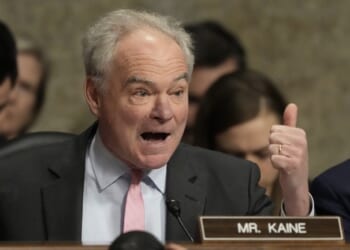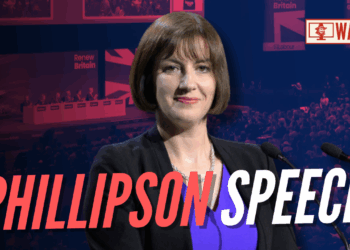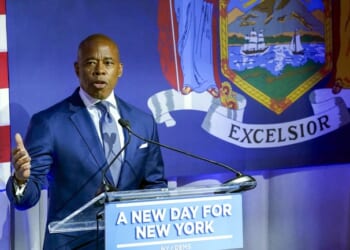David Willetts is a member of the House of Lords.
Danny Kruger’s essay in the Sunday Telegraph explaining why he has joined Reform shows what a loss he is to the Conservative Party. He is a thoughtful serious-minded Conservative.
He argues that the Conservative Party can no longer be the vehicle for Centre Right politics and a key reason is that the Party has not recognised the mistakes we made in Government.
This follows from reports of a monster row between former Tory Ministers and Prime Ministers at a dinner linking them up with American Conservatives over here as part of President Trump’s visit. The argument is reported to have been around Boris defending his Government’s record against the critics.
After Tories suffer a landslide defeat there is a painful process of breaking free from the Party’s record in Government and the old way of doing things. After 1906 the voluntary party in the country seized control of much of the party organisation from the Parliamentary Party who they thought were responsible for the defeat.
Bonar Law warned the Party conference that “Our Party on the old lines will never have a future in the life of this country.”
After the 1945 landslide defeat Churchill and Lord Woolton his Party Chairman wanted to drop the Conservative name – he proposed the Union Party instead. The pages of the Telegraph were full of suggestions.
The Conservative Party that finally makes it back into Government after a landslide defeat looks and sounds very different from the one that left office. Learning lessons from what went wrong in Government is a valuable part of that process. But nothing will be learnt unless the process is rigorous and unflinching.
The easy option is to head in the direction already visible across the party and blame a group of dangerous over-educated progressives at the top of the Party who betrayed true Conservatism. They can even be dismissed as LibDems who shouldn’t really be in the Party at all – revealing a dangerously narrow understanding of the Conservative tradition which is actually part of the problem.
Recent Conservative Governments will be denounced because Brexit wasn’t hard enough and we should have left the ECHR as well. So even the prominent Brexiteers Boris and Michael Gove become part of the betrayal – finding himself on the wrong side of this narrative may have been what upset Boris at the dinner.
Explaining Government failure because of betrayal by the leadership is familiar on the Left but now it is appearing on the Right. It is a convenient device to avoid confronting awkward questions about what actually is a viable policy.
And it can lead to badly thought-out plans which don’t work in Government and which in turn feed the next round of denunciations of betrayal. Conservatives should not go down that route. So what would a more rigorous appraisal of the Conservative record look like?
Take economic policy.
Conservatives do believe in cutting taxes but that cannot always be afforded. Sometimes cutting the budget deficit has to be the priority. It would be very convenient if cutting taxes boosted revenues – as famously promised in the Laffer curve. There can be very special circumstances where that may apply.
But Nigel Lawson was right to dismiss the Laffer agenda as “too good to be true.” Conservatives should not fall for it now.
There has to be tough control of public spending as well which the Coalition delivered. If anything my regret is that too much of the public expenditure saving was then spent on the Lib Dem policy of raising income tax thresholds. Instead of that we should have invested more and got closer to balancing the books which really would have been a great achievement.
So if tax cuts are to be delivered we can’t gamble on their being self-financing. And we can’t afford to increase public borrowing, especially after the response to Covid left us with so much public debt. So there need to be big spending cuts to make them affordable. The biggest budget is social security and welfare.
Margaret Thatcher’s biggest single saving in public spending was linking the pension to prices. But this time round the party in Government embraced the opposite and expensive policy of the triple lock. But instead of breaking from that shockingly expensive policy running at £15b on some estimates, the Party appears to be sticking with it.
That means any benefit cuts must hit families and younger people. So the Tory Party still looks like the party of the old. We are in danger of dropping the wrong policies.
Looking back our Covid response in Government was probably too hard on young people and excessively focussed on the old. Opposition is an opportunity to break free from that with a handsome offer to help young people build up capital. Without a stake in society young people will look elsewhere.
But instead of engaging with these young people who are getting a raw deal it is easier to say it is the fault of universities that young people are disaffected – like dangerous intellectuals in a Dostoevsky novel. This caricature of them, evinced in Danny Kruger’s article, is a missed opportunity to offer something constructive to help them.
There is a lot to learn from the successes and mistakes of the last 14 years in Government. But it is fantasy to think that tax cuts are self-funding, that there are massive budget savings from ending wokery, or that we can carry on taking from the young to give to the old.
If anyone can confront these uncomfortable truths it should be a proper Conservative party.
The populist alternative looks more like a way of evading them.


![Scott Bessent Explains The Big Picture Everyone is Missing During the Shutdown [WATCH]](https://www.right2024.com/wp-content/uploads/2025/11/Scott-Bessent-Explains-The-Big-Picture-Everyone-is-Missing-During-350x250.jpg)














